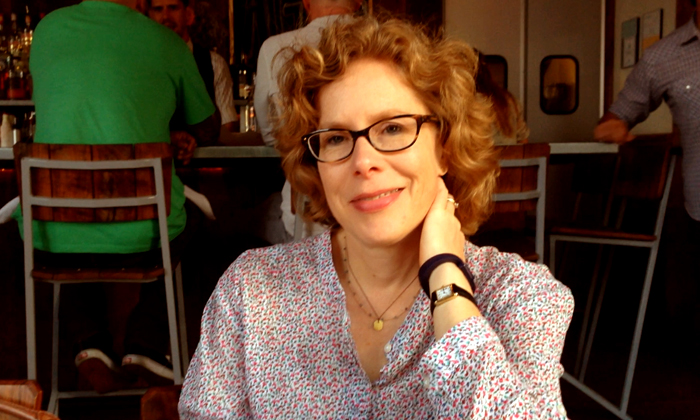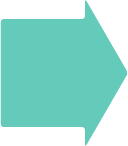Julie Hogenboom—From Books to Media to Tech
17 Jun 2014, Posted by in Advice for Aspiring Producers, Editorial Expertise, Edtech, Expert Interviews, instructional designJulie Hogenboom is a content and marketing expert who transitioned from print to digital, with an interlude at Harvard on the way. Julie and I met through friends at Disney (one of my former employers) and I knew immediately that she would have valuable insights to share. Julie is currently an editorial director at Yahoo, focused on content marketing programs for global brand advertisers, such as Procter & Gamble. Previously Julie had product and editorial oversight for the Disney Family portfolio of sites where she launched food, travel & parenting sites. She has also worked as a content strategy consultant, with clients including Inkling, Examiner & Kazaana.
- 1. You started your career in print publishing and moved to digital. Why and how did you make the transition?
I was fortunate that my first job out of college as a textbook editor, at Houghton Mifflin, was a great fit for me. There was a production process to learn but also plenty of opportunity for editorial thinking and expressing ideas—analyzing manuscripts, analyzing market needs, articulating instructions to an author-writer.
I soon became aware that the college textbook business was in transition, however—students were starting to balk at paying ever-increasing prices for the big introductory texts in business, psychology and management that were the company’s bread and butter. The used-textbook business was thriving, but computer software was also changing curriculum delivery. There were a few people at the publishing company assigned to research new technologies and propose new strategies, but nothing major was being undertaken.
Also as a young editor I got my first taste of a big corporate layoff. I was not directly affected, but saw experienced editors all around me who had been with the company for decades lose their jobs, only a few years away from retirement. I realized that just staying put and ignoring changing market factors was not an option.
So after 5 years at Houghton Mifflin, during which I was promoted a few times and had increasing responsibility, I left to enter a graduate program at the Harvard Graduate School of Education dedicated to “technology in education.” I was expressly interested in how technology would change and improve instruction.
Through the classes and readings I came to see that technology could offer new ways of learning and engaging with concepts, not just a more efficient delivery mechanism than paper textbooks.
In essence, the master’s program was the first step in moving away from print to digital. But I really have to caution anyone who thinks additional schooling is the obvious way to make a career switch. It is critical to have some kind of practical experience, earned through internships or real-world projects created in school, or volunteering, in one’s chosen new field. Employers are not persuaded by additional degrees alone. I think graduate school can be a source of inspiration, leading to new thinking, new networks, and new avenues, but is not a solution unto itself.
It took me nearly two years after finishing at Harvard to find a job. I made the process more difficult by moving to Los Angeles where publishing and educational products were rare, and where my Houghton Mifflin experience wasn’t very meaningful. At the time, I actually thought getting out of Boston was a good idea, that it would be hard to differentiate myself there; but I suppose I was really trying to rationalize accompanying my then-boyfriend on this wild escapade to LA. Truly, it was a hard adjustment for me.
I did finally land a job at Knowledge Adventure, an educational CD-ROM company, though it was an entry-level position, and the products were the most unimaginative kind of drill-and-kill math and phonics practice–a far cry from all the lofty ideas I’d been consuming at Harvard.
Despite being employed I did go through several more months of transition, as the CD-ROM business wound down and internet opportunities began to emerge. Eighteen months after starting at Knowledge Adventure, I began work at Disney Online as a producer. This is the job I mark as my true start in digital where I began to do real work and gain valuable experience.
“I continue to present myself at Yahoo as someone who can uphold high standards and create content that consumers value, while meeting advertiser needs. I’m not afraid of sales!”
- 2. You seem to have begun your career in content development and as the years went by became more business oriented. You don’t have a degree in business. Do you ever feel its absence? What was the hardest thing about making this change?
Though my switch to digital from print was a conscious choice, I never made a conscious decision to choose a more business-oriented path, though I do work with advertisers and their content needs currently at Yahoo, if that’s what you mean. I suppose my comfort with advertisers came from my work at Disney—our division was small enough that our editorial team had to work closely with the sales team on programs for advertisers. My colleagues and I saw it as a badge of honor that we could deliver top-notch editorial content but were also immersed in the revenue side of our business; we felt our print magazine colleagues with their ignorance of ad revenue and business challenges had their heads in the sand.
After leaving Disney I saw that the largest digital publishers have tried to emulate the church-and-state division between editorial and sales that magazines and newspapers traditionally observed. What I thought was a distinct digital editorial talent was actually an unusual blend, and maybe even misunderstood by some in the market.
In interviewing for my current role with Yahoo I realized my blended background was an advantage, and decided to emphasize it. I continue to present myself at Yahoo as someone who can uphold high standards and create content that consumers value, while meeting advertiser needs. I’m not afraid of sales!
- 3. What is the biggest risk you have taken in your career?
I don’t really think of myself as a risk-taker, but looking back, quitting a decent job to go to graduate school and then moving across the country to make a job switch were pretty big risks. I would say they paid off in that I like LA and my boyfriend (now husband) and I like the lives we’ve built for ourselves here. I have no idea if my career would have flourished in a different way if we’d stayed in Boston. But LA feels much bigger than Boston, so I’ve appreciated the bigger world view we’ve gotten here.
- 4. Have you ever had a mentor?
I have never had a formal mentor, but in every place I’ve worked I’ve sought out senior-level women I can learn from. I could use one right now.
- 5. What are you working on now?
My biggest challenge right now is exerting influence at Yahoo as a content person. I sense that Yahoo wants to be a technology company and is ambivalent about being seen as a publisher; there seems to be a begrudging acceptance of the importance of content and editorial discernment in the Yahoo product story. I see a tension between editorial talent and automation here. Probably too dramatic to paint it as “man vs. machine” but it is the first time for me working in an environment where tech is the primary language and content/editorial decision-making are so much lower on the priority scale. Not a bad exercise for me, but definitely different.
Second challenge is proving that content for advertisers can be user-focused and high quality, not a compromise.
- 6. What advice would you give an aspiring interactive producer?
Get your hands dirty by working with the tools and start making things right now—tumblr, video, blogs, pinterest. Learn how the different platforms work so you can be conversant. These things are open and available to everyone so there is no excuse not to mess around and try to create things for yourself. Take classes at linda.com when you encounter something you don’t understand. They are affordable and a great boost for someone trying to get a leg up.
- 7. If you could start all over again, what career would you pursue?
Not sure I would pursue anything differently; careers seem to be a blend of conscious choosing and falling into opportunities that exist at the time. I now wonder if I will ever get back to education, and have sometimes wondered if I would have enjoyed working for a college or university, on a college campus. Might be too late for educational design but maybe not for some other kind of work in higher ed.
Julie makes a great point about career paths, as she puts it “ a blend of conscious choosing and falling into opportunities that exist at the time.” How would you describe your career path? Did you always know what you wanted to be when you grow up? How did you find your passion?





